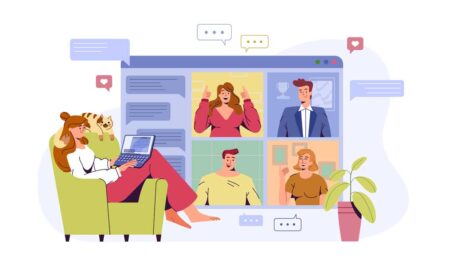You have a legal and ethical duty to keep your employees safe during the coronavirus.
- You have a legal obligation to your employees to create a safe workplace.
- Follow safety and health guidelines from the CDC and WHO, and fulfill your legal obligations set forth by the FMLA, ADA, FFCRA and HIPAA.
- Communicate and enforce safety and sanitation measures such as daily employee screening, social distancing and surface disinfecting.
COVID-19, also known as the novel coronavirus, has changed the way businesses are operating – or not operating – around the globe. In the United States, the list of businesses that should continue normal operations has dwindled to only those deemed “essential” by the U.S. Department of Homeland Security, including critical industries like healthcare, food and agriculture, energy, transportation, and communications.
If your business is continuing to operate within one of these public-facing industries, it is your responsibility to ensure that your employees are working in safe and sanitary conditions. To help you, we have compiled a list of the best practices for stemming the spread of the coronavirus.
How to prevent the spread of the coronavirus at work
Owners of essential businesses should be as flexible as possible to abide by changing federal and state guidelines, and accommodate employees with any health and safety concerns they have.
Social distancing has helped slow the spread of the coronavirus. Employers can be mindful of this by staggering employee shifts, using larger conference rooms and distancing employee cubicles, if possible.
Richard Dreitzer is an attorney and director at Fennemore Craig who focuses primarily on labor and employment law. He listed a five-step approach that every employer should implement to increase employee safety and sanitation in the workplace:
- Create a daily screening protocol that consists of asking employees if they have any of the coronavirus symptoms. Create a log of dates and responses.
- Separate and/or send home any employees who become ill at work.
- Emphasize the importance of employee hygiene, including hand-washing and sanitizing; enforce new workplace etiquette such as social distancing, the proper technique for coughing and sneezing, and staying home when sick.
- Intensify your company’s daily cleaning regimen. For example, sanitize commonly touched items (light switches, doorknobs, counters, etc.) in high-traffic areas (e.g., restrooms and breakrooms) using disinfectant wipes, spray, or a diluted bleach solution. Make hand sanitizer with at least 60% alcohol and applicable personal protective equipment available to employees.
- Make sure that your workplace policies (e.g., remote working, business-related travel, sick leave and paid time off) are clear and known to all employees. If you don’t yet have such policies in place, now is the time to create them and share them with your employees.
The most important thing is the health and safety of your employees and customers. Inform your employees about the current policies you have in place regarding coronavirus-related changes (e.g., remote work, sick leave, paid or unpaid leave, furlough, anti-discrimination and anti-retaliation guidelines, etc.), and communicate with customers about the added precautions you are taking to prevent the spread of the coronavirus.
Your legal obligations as an employer
At the very least, employers have a legal obligation to create a workplace that abides by the Occupational Safety and Health Act (OSHA) General Duty Clause, Section 5(a)(1), which requires employers to provide each worker “employment and a place of employment, which are free from recognized hazards that are causing or are likely to cause death or serious physical harm.”
This clause refers to an employer’s responsibility to identify and correct health or safety issues that arise in the workplace. You should be aware that ordinary principles of negligence apply to instances where an employer’s actions or inactions impact the health of customers. The lines of “employer responsibility” tend to get blurred regarding COVID-19, but there are still precautions you should take to protect your company and your staff.
“In the era of COVID-19, this could mean utilizing many of the antiseptic precautionary measures discussed above, but applying them equally where customers are concerned,” Dreitzer said. “If a company fails to take reasonable steps to protect customers, they could be held in breach of their ‘duty of care’ and can be financially exposed, where an injured or sickened customer’s damages are proven.”
Following the guidelines set forth by OSHA is not your only legal responsibility as an employer. Vanessa Matsis-McCready, assistant general counsel and senior human resources consultant at Engage PEO, said there are many other labor and employment laws business owners must follow, including the Families First Coronavirus Response Act (FFCRA), the Family and Medical Leave Act (FMLA), the Americans with Disabilities Act (ADA), and state and local laws.
The Department of Labor defines these acts as follows:
- The Families First Coronavirus Response Act “requires certain employers to provide their employees with paid sick leave and expanded family and medical leave for specified reasons related to COVID-19. These provisions will apply from April 1, 2020, through December 31, 2020.”
- The Family and Medical Leave Act “entitles eligible employees of covered employers to take unpaid, job-protected leave for specified family and medical reasons with continuation of group health insurance coverage under the same terms and conditions as if the employee had not taken leave.”
- The Americans with Disabilities Act “prohibits discrimination against people with disabilities in several areas, including employment, transportation, public accommodations, communications, and access to state and local government’ programs and services.”
The coronavirus pandemic poses a unique threat to employers that they must carefully manage. Employers should be familiar with the medical protections their employees have. For example, Dreitzer said that some employers may not legally be allowed to take employees’ temperatures.
“If the employer has more than 15 employees, they are covered by the Americans with Disabilities Act, and taking an employee’s temperature is considered a medical examination, which is only permitted in instances of medical justification and/or necessity,” said Dreitzer. “Merely thinking that an employee looks like they might have COVID-19 is not likely to be sufficient justification for this.”
The ADA protects infected employees as well. If an employee contracts COVID-19, the ADA requires you to maintain employee confidentiality about the illness.
Health and safety resources for employers
Here are several resources to help you operate a safe and healthy work environment.
- Risk assessments. If you or someone on your team is at risk for contracting the coronavirus, you can perform a risk assessment, as set forth by the Centers for Disease Control and Prevention (CDC). There are separate risk assessments available for healthcare professionals as well.
- Prevention and protection guidelines. The CDC has several resources on preparing workplaces for the coronavirus and how to protect yourself from becoming sick. It provides information for you, your community and healthcare professionals, as well as the President’s Coronavirus Guidelines for America. OSHA offers a manual that employers can follow to prepare their workplace for the coronavirus.
- Travel information. The CDC has a comprehensive resource for travelers, whether you are traveling within the U.S., internationally or via cruise ships. Ensure that your staff understands the proper precautions and travel bans.
- Printable materials. The CDC has printable posters that you can display in your workplace to raise awareness about proper health and sanitation measures.
- HIPAA protections. Understand HIPAA privacy in relation to COVID-19.
Although these are great resources to get you started in creating a safe and healthy workplace, small business owners should seek expert assistance in creating a comprehensive workplace policy, said Rachel Walla, an industrial safety and health consultant at Ally Safety.
“Call on a consultant, ask for a free OSHA consultation, or try your local health department,” said Walla. “This is a difficult time for businesses, and relying on guesswork will just add to the stress and could be dangerous. Use the help available to figure out what’s best for yourself, your employees and your customers.”
How to manage employees’ COVID-19 concerns
Since the coronavirus outbreak is affecting people’s lives personally and professionally, it is important to address your staff’s concerns. The best way to do that is to be proactive and implement the proper safety measures at your workplace. By creating a safe and sanitary work environment, and enforcing strict sanitation measures, you can alleviate some of the concerns your employees have that they may get sick.
“There are hundreds of ways to prevent the spread, depending on each company’s unique situation, but the most important thing is that the company has a clearly communicated plan that is upheld by every employee at all levels from the CEO to the delivery driver,” said Walla. “This needs to become part of the fabric of everyday work, because outbreaks will likely come in waves throughout the rest of the year. Get a rock-solid plan in place, and make sure everyone follows it.”
Personal health is likely not your employees’ only concern. With day cares and schools shuttering, and school-age children turning to at-home online learning, many employees worry about reporting to work while their children are at home. Employers should be prepared to manage employee concerns and follow the legal obligations of giving paid or unpaid time off, if necessary. Matsis-McCready said that most state and local earned sick time laws, like the NYC Earned Safe and Sick Time Act, provide paid time off due to closure if an employee needs to care for a child whose school or childcare provider has been closed due to a public health emergency.
“Overall, it is important to make your employees feel comfortable during this unprecedented time,” said Matsis-McCready. “Businesses of all sizes can do this by increasing cleaning and sanitation measures; following local, state, and federal government policies; enforcing social distancing policies in the office; offering remote work; and referencing information from the WHO and CDC.”


